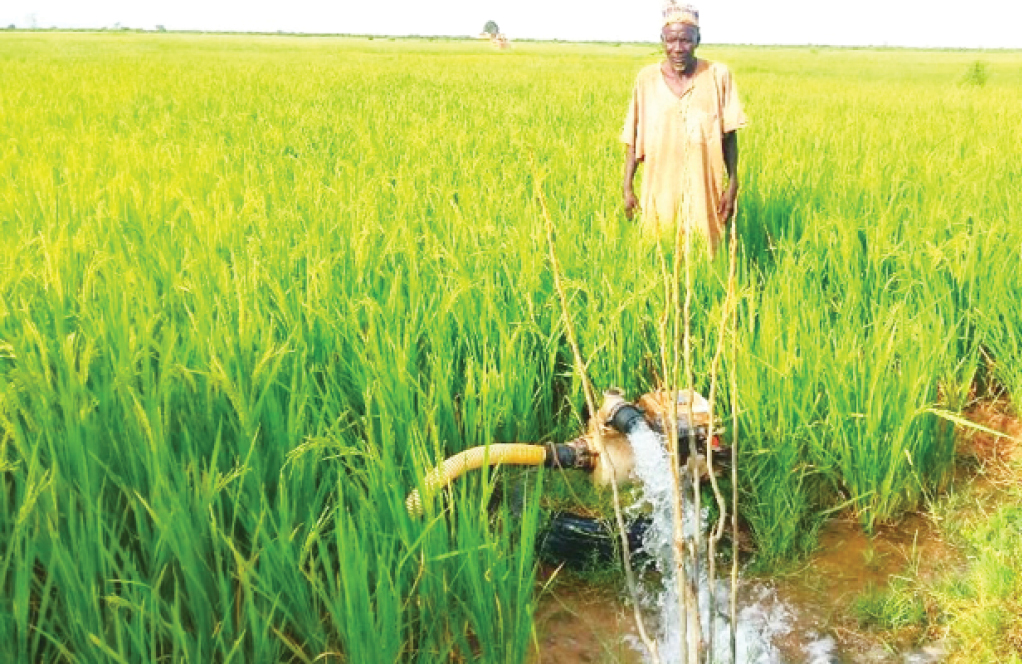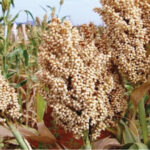As dry season rice farming preparation gears up in Kano State and some other parts of the country, farmers have expressed concern over the high cost of agricultural inputs like seed, pesticides and specifically, fertiliser. Many farmers have also revealed that due to the high cost of inputs, a lot of farmers have decided to either reduce the sizes of their farmlands or not to produce rice at all.
A visit to some irrigation site across Kano State revealed that while some farmers have begun transplanting, many rice farmers are currently within the nursery preparation stage, while few others haven’t decided yet on whether to get involved in the dry season production or not.
Malam Hussain Kabiru, a rice farmer who claimed to have been in the sector for over two decades, said he had resolved to cultivate only 40 per cent of his farmland within this year’s dry season because he could not afford to cultivate it 100 per cent due to high cost of agricultural inputs.
“The economic situation has negatively affected every farmer’s purchasing power; and to make it worse, the prices of agricultural inputs have gone very high. A bag of UREA fertiliser is now selling at N40,000 as against its initial price of N9,000, while NPK 15:15, depending on company, is selling at N45,000 to N47,000. This is a vivid outrageous cost that not all farmers can afford. To be honest, many farmers wouldn’t be able to cultivate their farmlands this dry season, while many, like me, would have no option than to reduce their initial farmlands to what they can accommodate comfortably. I have chosen to work on 40 per cent of my initial farmland size,” he revealed.
Another rice farmer, Shehu Mustapha Dorawa, said this year’s dry season rice farming needed a serious intervention and support from both public and private sectors to be able to meet up the expected paddy supply. He explained that with the gap in the wet season rice production, the need for an increased dry season production had become necessary.
He further said that unfortunately, high cost of agricultural inputs was threatening the whole processes as many rice farmers couldn’t cope with the rising cost of inputs.
“If you require, let’s say, N300,000, to get your rice farm cultivated annually, with the current happenings in the sector, you now need nothing less than N900,000 to be able to do what you used to do. And many of us can’t afford to do that despite the fact that we are fully aware of the need to bridge the existing gap in the paddy requirement,” he lamented.
However, the state chapter chairman of the All Farmers Association of Nigeria (AFAN) Alhaji Abdulrasheed Magaji Rimingado, said the association had been working on possible ways to encourage and promote rice production amidst the rising cost of inputs. He explained that the association had personally secured some soft loan for the farmers and also had made moves to reach an agreement with some rice milling companies to serve as up-takers of paddy produced by the farmers.
He further revealed that the AFAN had observed with reservation, the way and manner at which federal government’s implementation of the rebranded National Agricultural Growth Scheme and Agro-pocket (NAGs-AP) intervention on wheat experimented in five wheat-producing states was carried out. He explained that though a very good initiative, the project was wrongly implemented, and as such, the whole aim may be defeated.
He advised that with amendments and special consideration to genuine farmers, the NAGs-AP would indeed serve as a step forward in encouraging and supporting rice farmers.
“The NAGs-AP is no doubt a very good approach to agricultural development strategies; but unfortunately, we have seen how the concluded NAGs-AP on wheat fared, and I am sure we have all witnessed the lapses. That is why I suggested that NAGs-AP should be extended to rice farmers, but with caution. Let real and genuine farmers participate in the project through effective involvement of AFAN officials, and let the whole processes be more transparent and accountable and devoid of farmers in suits,” he said.

 Join Daily Trust WhatsApp Community For Quick Access To News and Happenings Around You.
Join Daily Trust WhatsApp Community For Quick Access To News and Happenings Around You.


